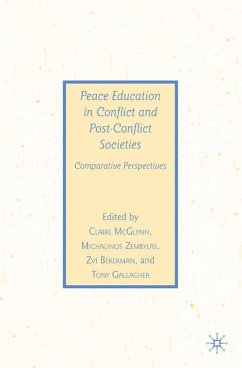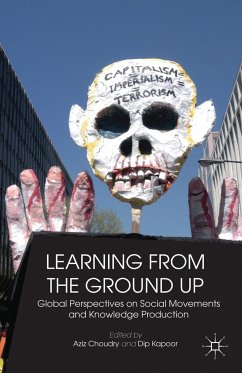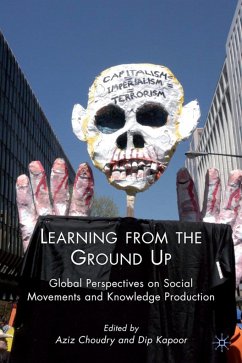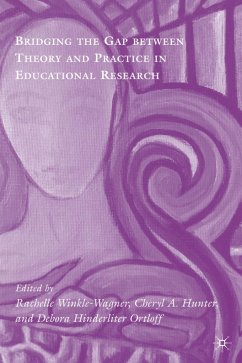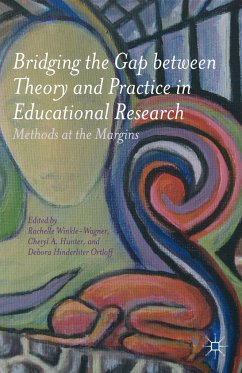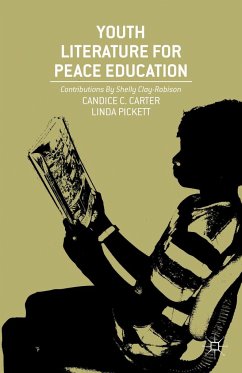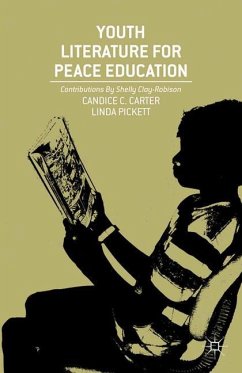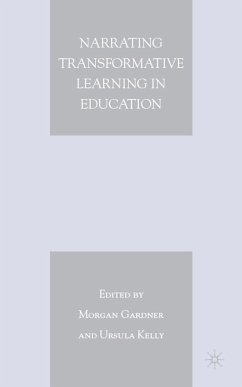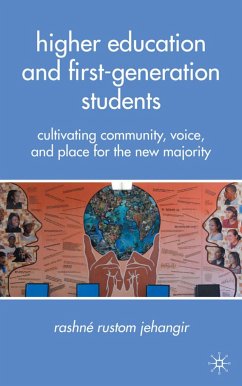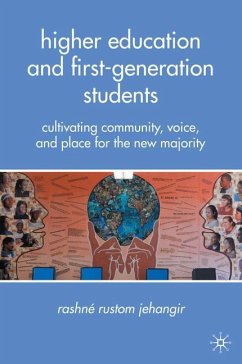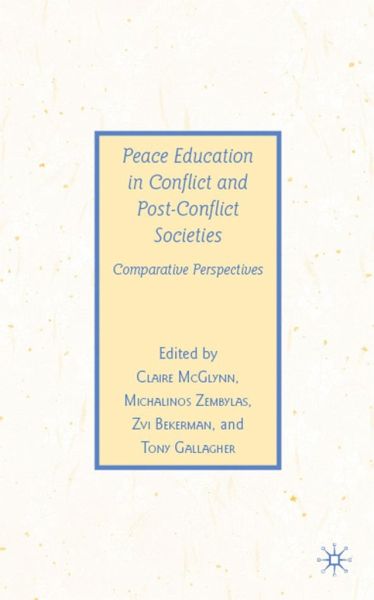
Gebundenes Buch
Peace Education in Conflict and Post-Conflict Societies
Comparative Perspectives
Herausgegeben: McGlynn, Claire; Loparo, Kenneth A.
Versandkostenfrei!
Versandfertig in 6-10 Tagen

PAYBACK Punkte
19 °P sammeln!





This collection of peace education efforts in conflict and post-conflict societies brings together an international group of scholars to offer the very latest theoretical and pedagogical developments. Rather than focus on ad hoc peace education efforts this book investigates the need for long term, systemic approaches and innovative pedagogies.
CLAIRE MCGLYNN lectures at the School of Education, Queen's University, Belfast, UK. She edited Addressing Ethnic Conflict through Peace Education (with Zvi Bekerman, Palgrave Macmillan 2007). MICHALINOS ZEMBYLAS is Assistant Professor of Education at the Open University of Cyprus. He has published Teaching With Emotion (2005), Five Pedagogies, a Thousand Possibilities (2007), and The Politics of Trauma in Education (Macmillan Palgrave, 2008). ZVI BEKERMAN teaches anthropology of education at the School of Education and The Melton Center, Hebrew University of Jerusalem, Israel and is a Research Fellow at the Truman Institute for the Advancement of Peace. He has recently published Cultural Education-Cultural Sustainability (with Ezra Kopelowitz, 2008) and Mirror Images (with Diana Silberman-Keller, Henry A. Giroux, and Nicholas Burbules, 2008). TONY GALLAGHER is Professor at Queen's University, Belfast, UK, Head of the School of Education, an International Fellow with Facing History and Ourselves, Chair of Public Achievement (Northern Ireland), and a member of the advisory board of the Northern Ireland Foundation. In 2004, he published Education in Divided Societies (Palgrave Macmillan).
Produktdetails
- Verlag: Palgrave Macmillan / Palgrave Macmillan US / Springer Palgrave Macmillan
- Artikelnr. des Verlages: 978-0-230-60842-9
- 2009 edition
- Seitenzahl: 274
- Erscheinungstermin: 19. Mai 2009
- Englisch
- Abmessung: 215mm x 145mm x 20mm
- Gewicht: 479g
- ISBN-13: 9780230608429
- ISBN-10: 0230608426
- Artikelnr.: 23484461
Herstellerkennzeichnung
Libri GmbH
Europaallee 1
36244 Bad Hersfeld
gpsr@libri.de
"There is no doubt that peace education is one of the most important challenges of the civilized world. This edited volume provides an important enlightenment of how to plan, construct and implement peace education. It tackles the mission from theoretical, pedagogical, empirical and contextual perspectives by offering real examples from different projects in such troubled spots like the Middle East, Cyprus, Northern Ireland, Burundi or Macedonia. The book is a must for practitioners and researchers who try to develop peace education in societies torn by vicious conflicts." - Daniel Bar-Tal, Branco Weiss Professor of Research in Child Development and Education School of Education, Tel Aviv University
"At the 2007 World Congress of
"At the 2007 World Congress of
Mehr anzeigen
Comparative Education, attendees adopted a "Sarajevo Declaration on Education," stating their commitment to "promote and foster among the educators and people of our regions the goal of living peacefully together through education and intercultural dialogue." This edited volume provides critical insights concerning the challenges and opportunities for living up to the ambitious and important goal of this Declaration." - Mark Ginsburg, Educational Quality Specialist, Academy for Educational Development (USA); Co-editor of Comparative Education Review
"In a world where serious conflicts pose barriers to sustainable peace in many societies, the vision and work of education for a culture of peace is indispensable and urgent. This timely collection of case studies and critical analyses provides valuable and creative insights and lessons drawn from peace education initiatives in various social, political and intercultural contexts. It shares the commitment, hopes and inspiration of peace educators across diverse countries and regions." - Toh Swee-Hin, Peace Education Commission, IPRA & Laureate, UNESCO Prize for Peace Education (2000)
"This work is a very useful and important contribution to peace education. Scholars from Israel, Cyprus, and Belfast deal with the needs of those who teach in these fields both in situations of conflict as well as post conflict contexts. Educators need context based insights situated in research and this book does this very eloquently." - Jagdish Gundara, Head of the International Centre for Intercultural Studies, Professor of Education at the University of London Institute of Education.
Peace Education in Conflict and Post-Conflict Societies: Comparative Perspectives, has won the first annual CIES Jackie Kirk Outstanding Book Award.
"In a world where serious conflicts pose barriers to sustainable peace in many societies, the vision and work of education for a culture of peace is indispensable and urgent. This timely collection of case studies and critical analyses provides valuable and creative insights and lessons drawn from peace education initiatives in various social, political and intercultural contexts. It shares the commitment, hopes and inspiration of peace educators across diverse countries and regions." - Toh Swee-Hin, Peace Education Commission, IPRA & Laureate, UNESCO Prize for Peace Education (2000)
"This work is a very useful and important contribution to peace education. Scholars from Israel, Cyprus, and Belfast deal with the needs of those who teach in these fields both in situations of conflict as well as post conflict contexts. Educators need context based insights situated in research and this book does this very eloquently." - Jagdish Gundara, Head of the International Centre for Intercultural Studies, Professor of Education at the University of London Institute of Education.
Peace Education in Conflict and Post-Conflict Societies: Comparative Perspectives, has won the first annual CIES Jackie Kirk Outstanding Book Award.
Schließen
Für dieses Produkt wurde noch keine Bewertung abgegeben. Wir würden uns sehr freuen, wenn du die erste Bewertung schreibst!
Eine Bewertung schreiben
Eine Bewertung schreiben
Andere Kunden interessierten sich für


